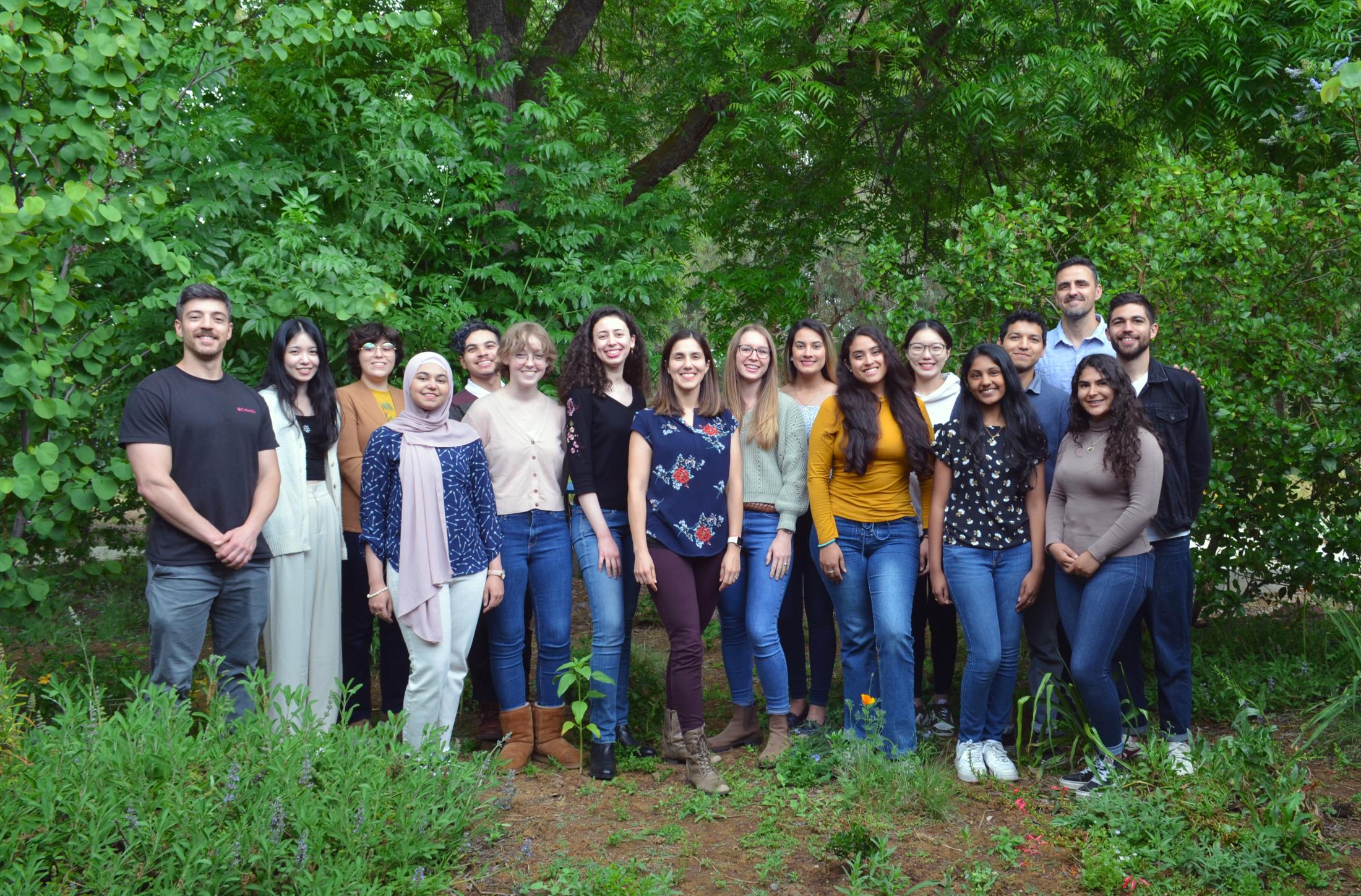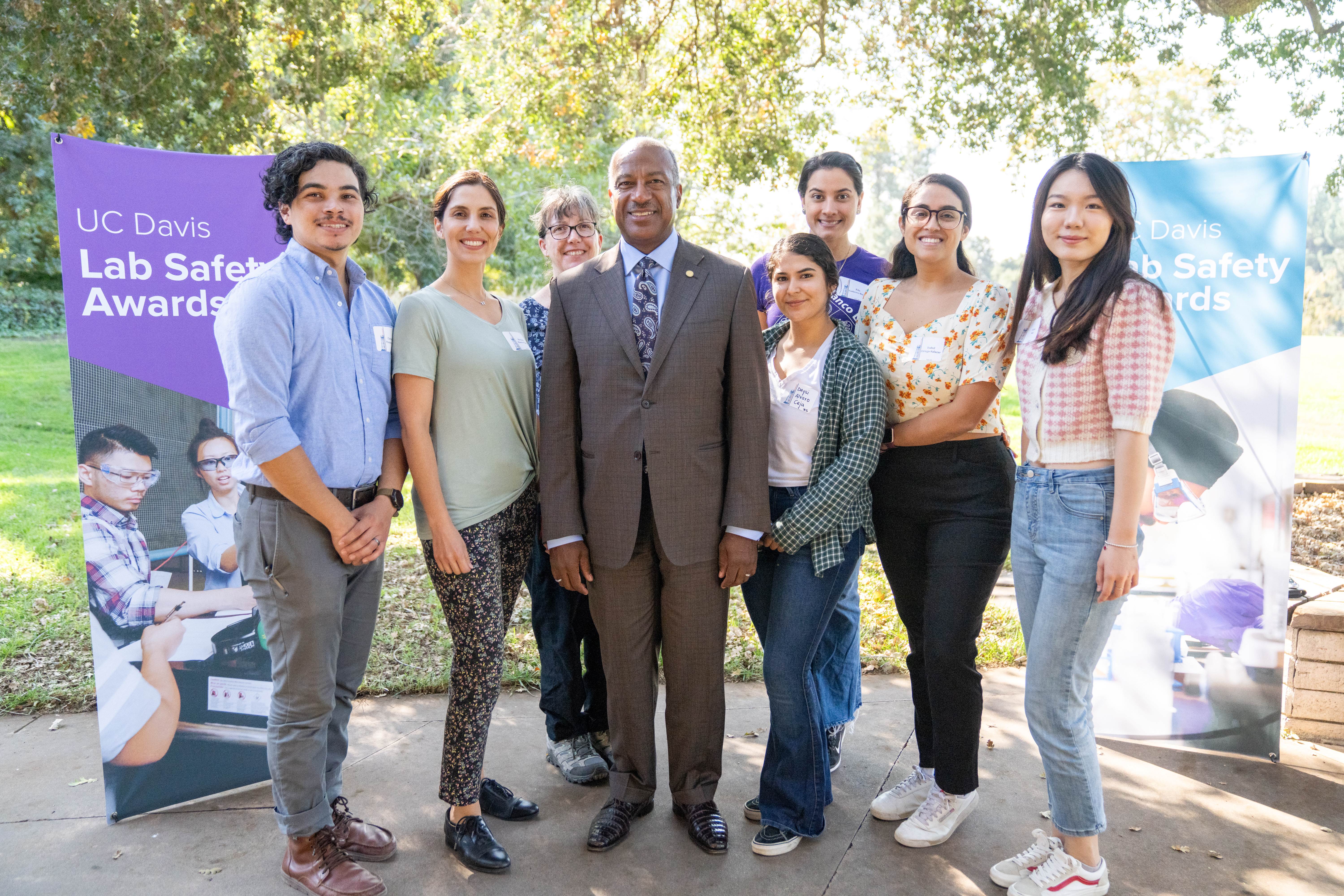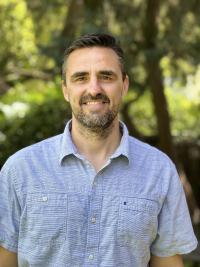This year's winner from the College of Agricultural and Environmental Sciences is Dr. Bárbara Blanco-Ulate.

Dr. Bárbara Blanco-Ulate’s lab studies fruit biology and quality, with a particular focus on tomatoes, strawberries, and pistachios. Their research is interested in fruit ripening, fruit diseases, and postharvest physiology and developing new strategies for improving fruit quality, nutrition, and shelf-life.
Safety is of the utmost importance as the lab conducts research that involves handling hazardous chemicals and liquid nitrogen. They believe a strong safety culture can be achieved through knowledge, involvement, and the use of proper PPE. No question is too silly when it comes to lab safety practices.

Members regularly discuss safety matters during lab meetings and all lab members participate in annual self-inspections and special inspections. The Blanco Lab also ensures that everyone is familiar with the location and content of SOPs and SDSs, and how to access the Lab Safety Manual.
To improve their work in the lab and office, they keep their chemical inventory up-to-date using ChemTags and pay close attention to ergonomics. The use of PPE is strongly emphasized daily to ensure that all lab members can handle chemicals, liquid nitrogen, and samples safely. As part of their annual Lab Safety Refresher Training, the lab holds an interactive quiz using Kahoot to test everyone's knowledge on lab safety procedures. LSP Tarran Richardson notes, “The PI cares about safety. The lab follows through on safety. Great job!”


Dr. Blanco-Ulate credits Postharvest Facilities manager Adrián Sbodio and graduate student Saskia Mesquida Pesci as key contributors to ensuring lab safety.
“They work tirelessly to maintain safe lab practices throughout the year and prepare the lab for inspections. Their constant vigilance and commitment to safety are vital in creating a secure working environment,” said Blanco-Ulate.
Moving forward, the Blanco Lab has plans to establish new safety protocols during an upcoming infrastructure renovation, implement follow-up sessions after initial on-site training and develop accessible lab safety materials for international students that face language barriers.